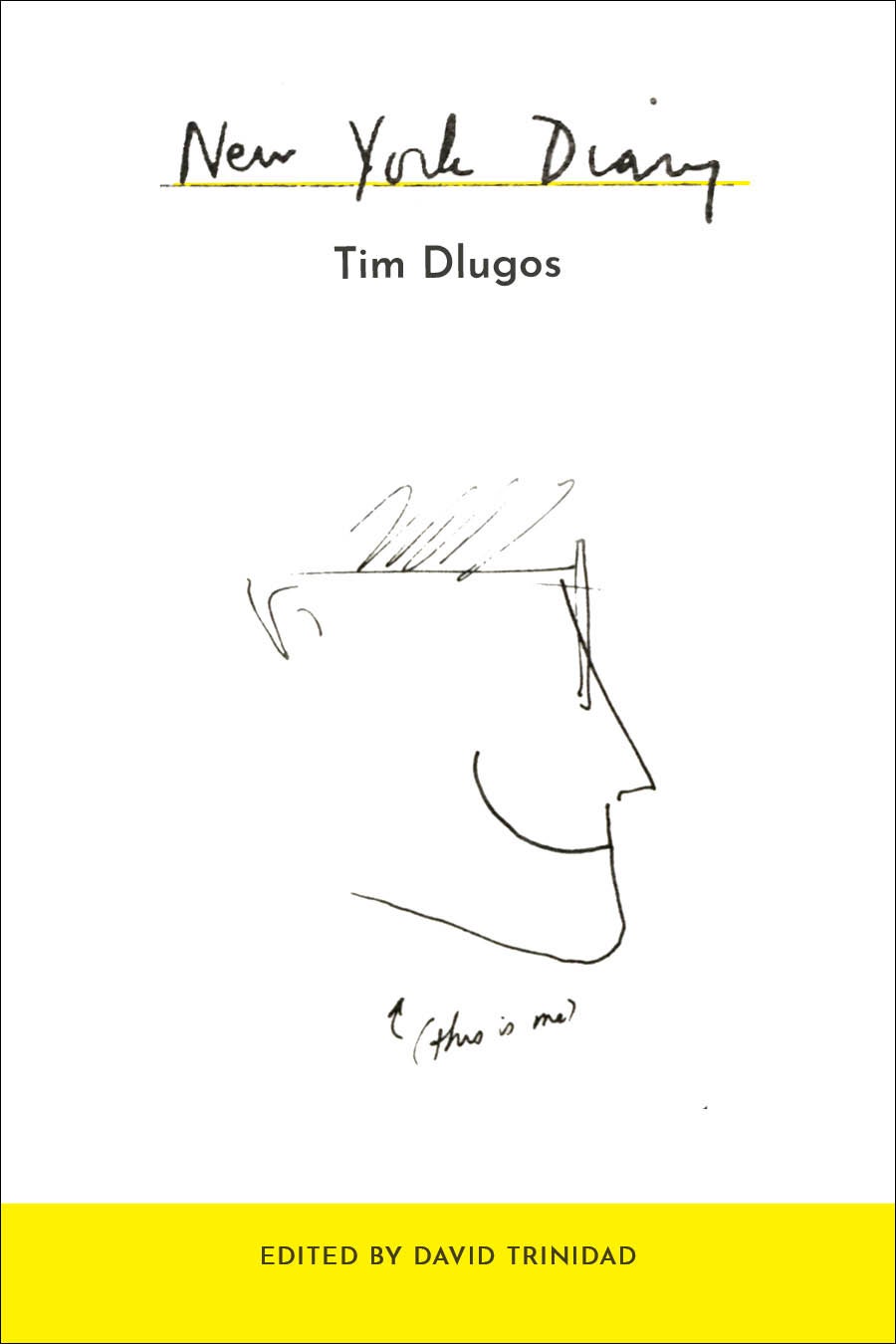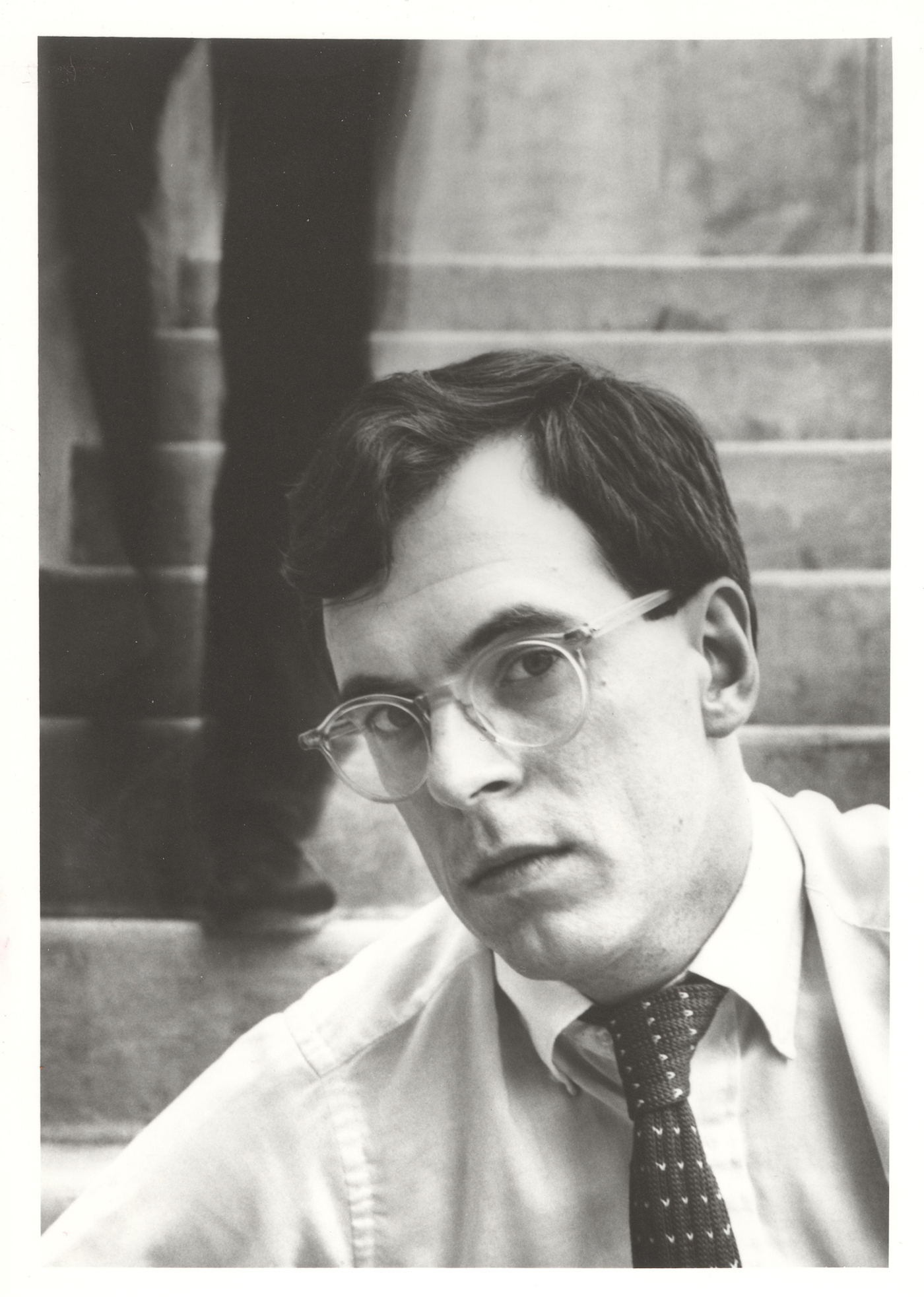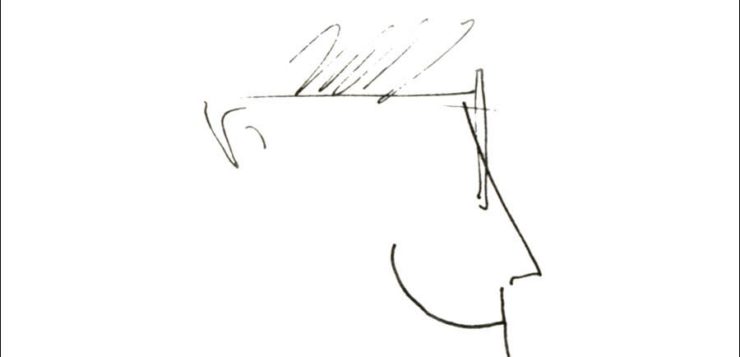 NEW YORK DIARY
NEW YORK DIARY
by Tim Dlugos
Edited by David Trinidad
Sibling Rivalry Press. 78 pages, $15.95
THE JOURNALS and diaries of writers are a mixed bag: sometimes they illuminate the author’s work, sometimes they’re more gossipy than informative, or even misleading if the writer has something to hide. In a few cases, they’re so pithy and beautifully composed as to rival the published work of the author. (The diaries of Isaac Babel and Mavis Gallant come to mind.)
At a mere 78 pages, poet Tim Dlugos’ New York Diary is so slight that it may seem inconsequential at first glance. And yet,
 Written in his first six months in New York in 1976 at the age of just 26, the diary is full of youthful charm (“I listened to A Chorus Line straight through, crying at half the songs; then I felt much better”) and details about the cultural high points of the period: “saw the beautiful Baryshnikov in Twyla [Tharp]’s piece, Push Comes to Shove. … Jerry Robbins was on the balcony when we took the air for one intermission—striking looking man. I fell in love w/ most of the corps—the men, to be exact.” It’s also full of a certain amount of titillating gossip: at a party, Dlugos runs into a boy partnered with one of Frank O’Hara’s former lovers, and remarks: “I told Steve that Frank O’Hara must have created the New York art and poetry scene single-handedly, with his popular cock.”
Written in his first six months in New York in 1976 at the age of just 26, the diary is full of youthful charm (“I listened to A Chorus Line straight through, crying at half the songs; then I felt much better”) and details about the cultural high points of the period: “saw the beautiful Baryshnikov in Twyla [Tharp]’s piece, Push Comes to Shove. … Jerry Robbins was on the balcony when we took the air for one intermission—striking looking man. I fell in love w/ most of the corps—the men, to be exact.” It’s also full of a certain amount of titillating gossip: at a party, Dlugos runs into a boy partnered with one of Frank O’Hara’s former lovers, and remarks: “I told Steve that Frank O’Hara must have created the New York art and poetry scene single-handedly, with his popular cock.”
Even in the short, six-month span of the diary, Dlugos rubs elbows with literary luminaries such as John Ashbery, Edmund White, James Schuyler, and countless others. He sees Meryl Streep performing in the park early in her career and thinks she’s wonderful. Like a great many young people, he is also a study in contradictions. Despite the numerous entries detailing the men with whom he did or did not have sex or with whom he had fallen in love, or whether he should make another trip to the baths, he is also capable of expressing great guilt about not having capitalized “God” on a previous page. Indeed, in 1988 he enrolled in Yale Divinity School with the intention of becoming a priest. Long before that could happen, he died of AIDS, in 1990.
In the end, it seems, Dlugos came to question nearly everything, including even his desire to be a poet. But, in his best work, he leaves behind a freshness and honesty that still rings true. New York Diary underscores anew the loss of this beautiful and important voice.
Dale Boyer’s new poetry collection, Columbus in the New World, is forthcoming from OhBoy Books.






